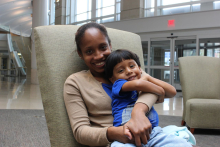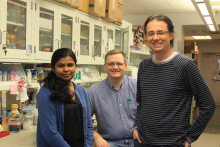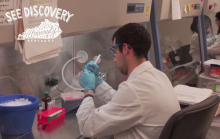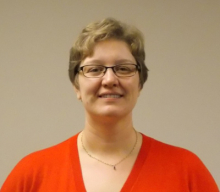AHEC Summer Camp Application Site Open!
NIH Releases Statement on Interest in Diversity
[From the NIH Website]
Notice of NIH's Interest in Diversity
Notice Number: NOT-OD-15-053
Key Dates
Release Date: January 12, 2015
Related Announcements
None
Issued by
National Institutes of Health (NIH)
Purpose
UK Pediatric Surgeon Intervenes to Help Boy from His Home Country
Registration is Open for the 5th Annual Barnstable Brown Obesity and Diabetes Research Day
Registration for the Fifth Annual Barnstable Brown Obesity and Diabetes Research Day is now open. The deadline for abstract submissions is April 17, 2015.
Registration deadline for the event is April 25, 2015. Details of the event, including registration and program schedule, can be found on the Barnstable Brown Obesity and Diabetes Research Day web site.
UK Researchers Solve Metabolic Mystery Lending Insight Into Lafora Disease
Pharmacology and Nutritional Sciences to Host 1st Annual Go Red for Women Symposium
Nagareddy Publication Tops Cell Metabolism 10th Anniversary List
Cell Metabolism 10th Anniversary Top 10 Breakthroughs in Immunometabolism.
Now with the University of Kentucky Saha Cardiovascular Research Center, Dr. Prabhakara R. Nagareddy publication is at top of list.
Adipose Tissue Macrophages Promote Myelopoiesis and Monocytosis in Obesity
2017-18 Urology Residency Match
Sanders-Brown Researcher Co-authors Influential Paper
Donna Wilcock, Ph.D., of the Sanders-Brown Center on Aging at the University of Kentucky, has co-authored a paper that offers a roadmap for future research into the interaction between vascular disease and Alzheimer's.
The article in-press, which aims to encourage researchers to fill gaps in the current knowledge of how Alzheimer’s and vascular conditions progress together and influence each other, was published online by "Alzheimer’s & Dementia: The Journal of the Alzheimer’s Association."




